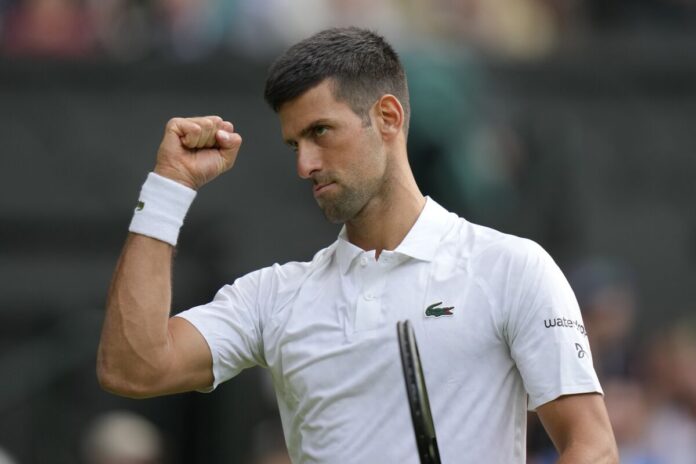The world of sports has always been an arena of athleticism, passion, and healthy competition. However, occasionally, it becomes intertwined with political sentiments, resulting in debates and controversies. In the recent French Open, Serbian tennis player Novak Djokovic found himself at the center of such a controversy. His act of leaving a political message on a TV camera lens has sparked discussions about the intersection of sports and politics, leaving the International Olympic Committee (IOC) and the International Tennis Federation (ITF) to consider potential disciplinary action. This article explores the events surrounding Djokovic’s gesture, the reactions it evoked, and the broader implications for the sporting world.
During a match at the French Open, Novak Djokovic took a moment to leave a message on a TV camera lens, expressing solidarity with his home country, Serbia. The message read, “Kosovo is the [heart symbol] of Serbia. Stop the violence” in Serbian. This act was a response to the escalating tensions between Kosovo and Serbia, following clashes in the region.
The Kosovan Olympic Committee (KOC) swiftly condemned Djokovic’s gesture, asserting that it breached the IOC’s principle of political neutrality. Ismet Krasniqi, President of the KOC, accused Djokovic of promoting Serbian nationalist propaganda and exacerbating tensions between the two countries. Krasniqi urged the IOC and ITF to take disciplinary action, emphasizing the need to prevent sport from becoming a platform for political messages.
In a subsequent press conference, Djokovic defended his actions, highlighting his sense of responsibility as a public figure. As the son of a man born in Kosovo, he expressed his desire to support both his people and the entirety of Serbia. Djokovic acknowledged the uncertainty surrounding the future of Kosovo and the Serbian people but believed it was crucial to demonstrate unity and solidarity during challenging times.

Djokovic’s political gesture has reignited the age-old debate about the appropriate role of politics in sports. Some argue that athletes should be allowed to express their views and use their platform to raise awareness about pressing issues. They believe that sports can act as a unifying force and be a catalyst for positive change. However, others contend that sports should remain apolitical, focusing solely on the spirit of competition and fair play. They caution against using sporting events as a battleground for political ideologies.
The KOC’s plea for disciplinary action against Djokovic has opened a discussion on the enforcement of political neutrality in sports. The ITF, in its response, noted that the Grand Slam rulebook does not explicitly prohibit political statements, shifting the responsibility to the respective Grand Slam authority. The IOC clarified that during the Olympic Games, athletes fall under their jurisdiction, but the French Open is governed by its own rules.
Novak Djokovic’s political message at the French Open has unveiled the complex relationship between sports and politics. It has sparked a dialogue on the boundaries of political expression within the realm of sports. As the IOC and ITF consider the KOC’s request for disciplinary action, they face the challenge of maintaining a delicate balance between athletes’ freedom of speech and upholding the principle of political neutrality. The outcome of this controversy will undoubtedly shape the future landscape of politics in sports, leaving us to ponder the extent to which athletes can influence social and political discourse on a global stage.





